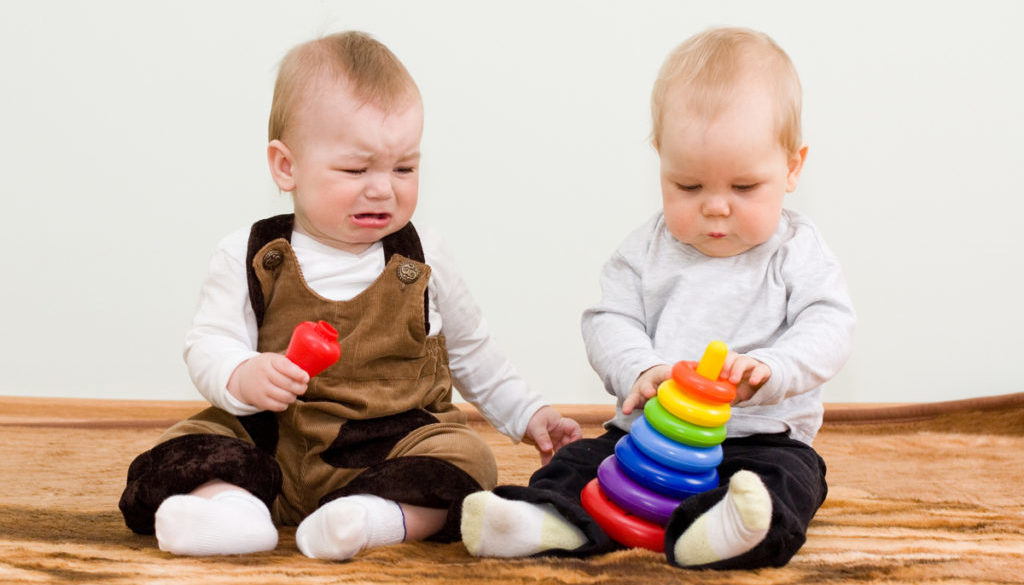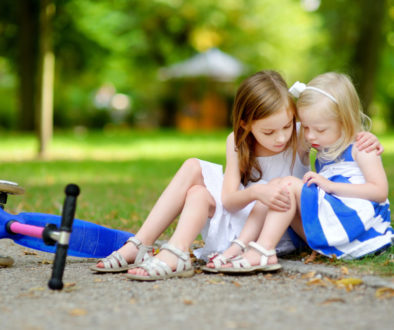Sharing is HARD!

“I want that toy and I want it now!” It is likely that if you could hear your child’s thoughts, you might hear this determined statement throughout the day. Despite a toddler’s small size, they are extremely determined when it comes to having something they want. They know what they want, and they will work very hard to get it! There is no doubt that sharing is not easy for a toddler and often, it can be challenging for a parent to manage. There are typically big feelings involved and you may feel like you are on repeat, asking your child to share over and over again; the good news is that this is all a normal part of development!
Most parents can recall a situation where their child has not wanted to share a toy with another child at the playground or during a playdate. It is common to try to convince our child to give up the item they were enjoying because another child is interested in it. Children this age don’t understand the concepts of “sharing” or “ownership”, and when we try to force those things, we tend to discourage play and learning.
We all want our children to have healthy social skills and learn to speak up for themselves, however, forcing a child to share can send the wrong messages, such as:
- Crying or whining will help a child get what they want.
- Parents are the ones in charge of who gets what and when they get it.
- They are not capable of successful social interactions without adult help.
- Children should always interrupt what they are working on to give something to another child just because the other child wants it.
With a toddler’s inability to effectively express their wants and feelings, as well as a lack of impulse control (not fully developed even by 4 years old) the result is often sharing traffic jams! In fact, given what we know about child development, experts agree that children are not capable of sharing successfully until at least 2 ½ to 3 years old.
So, what can you do when your little one doesn’t want to share? How can you navigate the tussle over the highly sought-after baby stroller in play class? A lot of patience and understanding will help but until your child is at the age where they can successfully navigate the emotional milestones involved in sharing, here are some ways to practice and lay the foundation…
- Show your child how to take turns and model sharing with them.
- Include your child in problem solving.
- Validate their feelings about the coveted object while explaining why they cannot have it and redirecting them to another.
- Comment when you see them share (even if they did not realize they did it)!
- Encourage play dates and socialization so they can practice sharing.
Children should be able to play and explore freely, feel fulfilled by their experience and then be able to give the toy over when they are finished. This encourages self-regulation, self-discipline and the ability to know when they feel satisfied. Kids enjoy making others happy and when they are able to do it on their own time instead of being forced, they learn the gifts of kindness, empathy and generosity.
Rather than focusing on your child learning to share, work with your child how to ask for a turn, how to wait, and how to take turns. When children are not forced to share, the result is a child who learns patience and empathy and one who will be able to handle more emotionally complex situations as they grow older.





